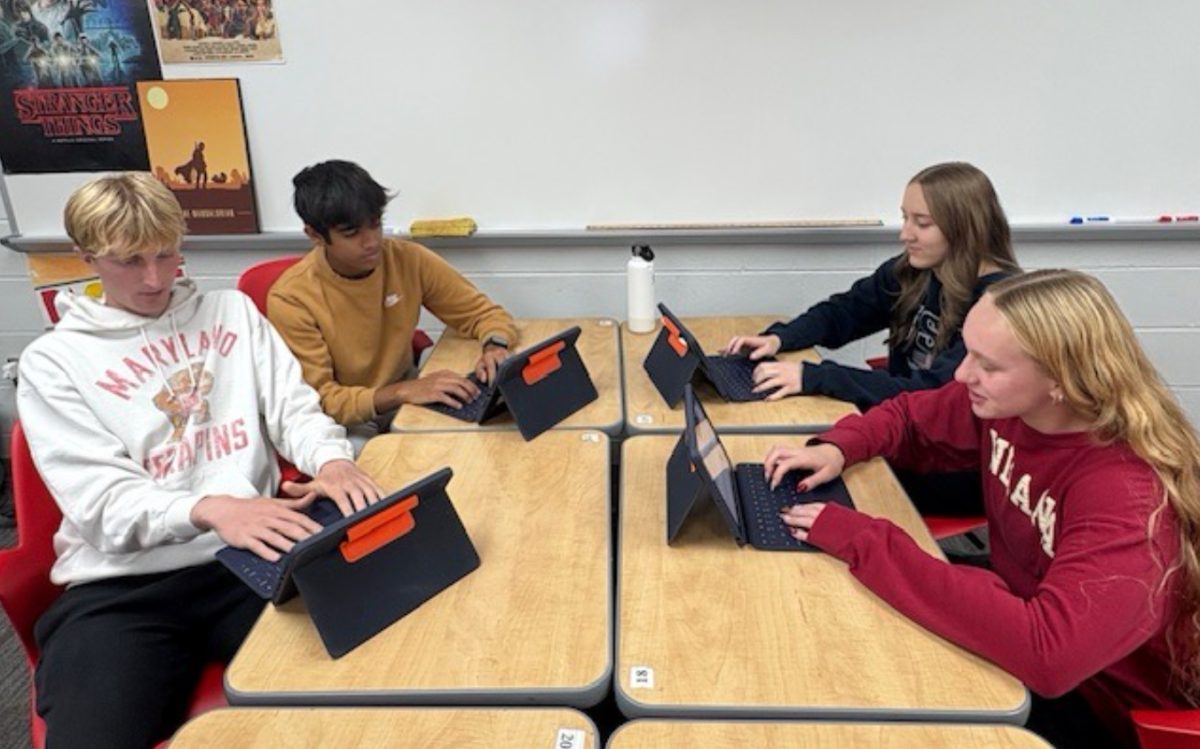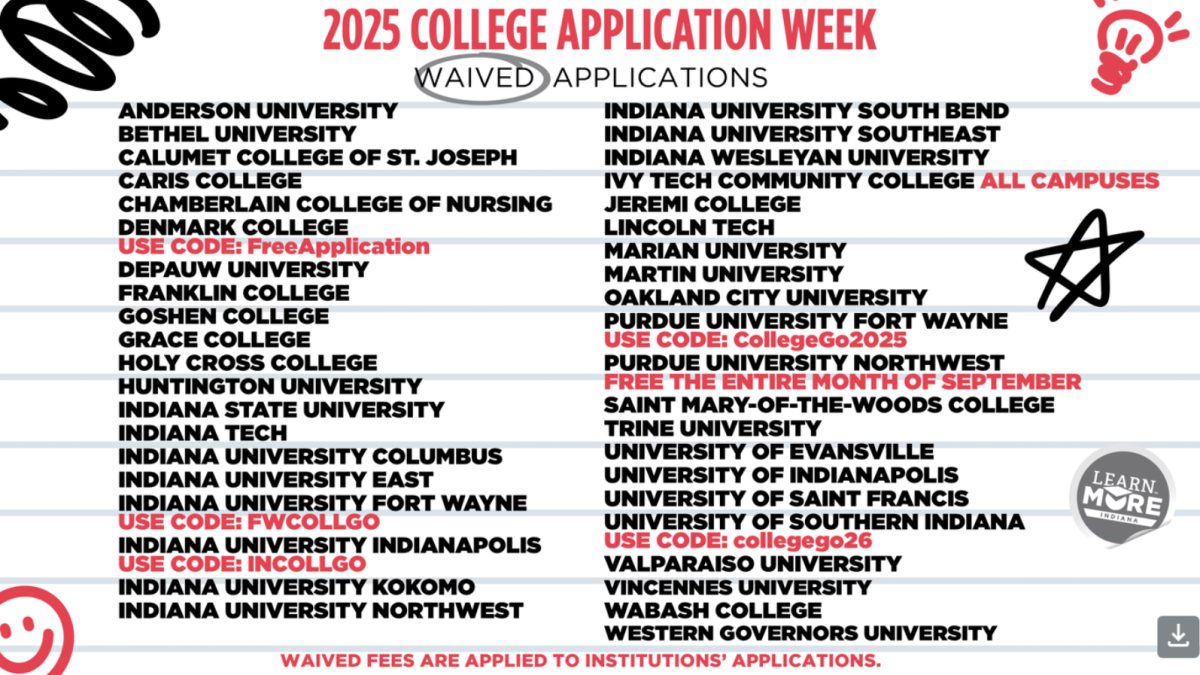The testing environment can be stressful at times. The sounds of pens clicking and lead scratching on paper is a lot to unpack in the time students get for testing. However, a band of teachers in the history hallway have changed the way they assess students by implementing group testing. APUSH teacher Josh Hart began group testing in his history classes, and he explained why he thinks group testing is a good alternative to traditional assessments.
“I absolutely think it benefits students. I would say one of the biggest reasons I know is the last two years of APUSH in this hallway have been unbelievably successful, and all the huge AP test scores, which obviously are done individually in May, but the two years we’ve done group tests, AP scores have really spiked,” Hart said. “The whole idea behind it is that on test days, instead of dead silence, you have energy, you have engagement, you have kids talking through the most important questions, through writings and things like that.”
Hart said that some kids might have missed material during the unit.
“When you put them in groups, and they have to share and discuss through reviews, practice questions and things like that, it leads them to being more engaged with the material,” Hart said. “When you have to describe something, whether it’s peer-to-peer or student-to-teacher, you’re usually more likely to retain that information. I also think it really, really helps and benefits kids when you’re in the dog days of winter, being able to engage and interact instead of being responsible for everything by yourself.”
Hart said that with social studies, many of the activities students do daily in class are subjective.
“There could be a different quality answer across a wide spectrum of opinions, and when you’re sharing with others, you’re going to hear other people’s perspectives, you’re going to generate different ideas, and even on tests with writing questions, there’s multiple ways to write a thesis statement to a prompt,” Hart said. “There are multiple ways to respond to a DBQ when we get to those. So that variety and sharing peer-to-peer, I think, is great in so many studies. When you get to AP government, you’re going to have tons of opinion building there. It’s not just you and the teacher, but it’s you, your peers and the teacher.”
Although group testing is a big part of social studies, Hart argues that group testing sets students up for their future courses as well.
“Most jobs require you to be in a team. You’re usually going to work with other like-minded people in your profession, so I really think it helps build character. That gives a great reward because it simulates the modern workforce, where you have to have four or five people with different ideas,” Hart said. “Some people work harder than others, and it creates collaboration stuff that I think is great. Kids always gripe in schools about how ‘They’re not teaching us anything about the real world.’ I would argue that what we’re doing with the group things is actually teaching you peer-to-peer skills that you need later in life. I think we build it in this course and the other classes that are doing the group testing stuff.”
Group testing doesn’t just appeal to the teachers. Junior Bly Salamh said he likes doing group testing a lot.
“It allows our group to be able to talk through all the questions and answers and better understand the subject,” Salamh said. “I feel like it benefits everyone to take a group test compared to an individual one, even smarter students, allowing them to better understand and talk through problems that they are struggling with.”
Salamh also noticed a change in his test scores overall after making the switch in APUSH.
“I get better grades in group tests most of the time because of the ability to talk through questions and get input or ideas from multiple people,” Salamh said. “It helps a lot to have other people who can correct your mistakes or help you understand or remember something you don’t know or forgot.”
Salamh said he thinks group testing is fair.
“When a lot of teachers give out group tests, they give out harder tests to compensate. This makes things a lot more fair, challenges the students, making them think through the harder problems. Being allowed to talk through things with a group allows different ideas and opinions to be shared to come to the right answer.”
However, group testing has not proved to be beneficial for teachers in other subjects. For example, Biomed teacher Michael Bishop has recently stopped doing group testing in his classes.
“I got rid of them because I was overinflating kids’ grades who did not deserve it. They were writing the coattails of other kids in the class,” Bishop said. “So I got away from it purely because kids would be the one or two weak kids with their friends, and then the friends would give them all the answers. Honestly, it skewed a lot of the grade and the ability to measure moving on to fourth year, just it wasn’t working out.”
Bishop said selecting groups was a major issue.
“On one hand, it promotes doing a little remediation, doing some work and then having the kids get into groups of three or four,” Bishop said. “I always had one kid getting nosed out if numbers don’t work well. And if you let them pick and you don’t make the parameters more stringent, then it gets unfair really quick.”
Bishop said now students can’t rely on anyone but themselves for their tests.
“So the grades are definitely a much fuller range of scores, and the kids who don’t do anything, and cheat in lab and class, they obviously perform poorly on tests, and you can see it.”
Salamh said despite the drawbacks, he hopes more teachers implement group testing in the future.
“I think a lot of teachers that are hesitant to implement group testing don’t want to do so because sometimes there are a select few students contributing nothing to their groups, but I feel like it still allows those people to learn more compared to what they would from an individual test,” Salamh said. “I think overall it benefits everyone more than individual testing does and I don’t see why teachers shouldn’t at least give it a try.”








